Back to series
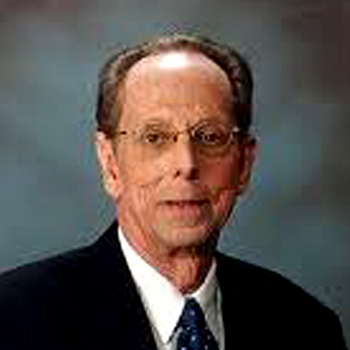

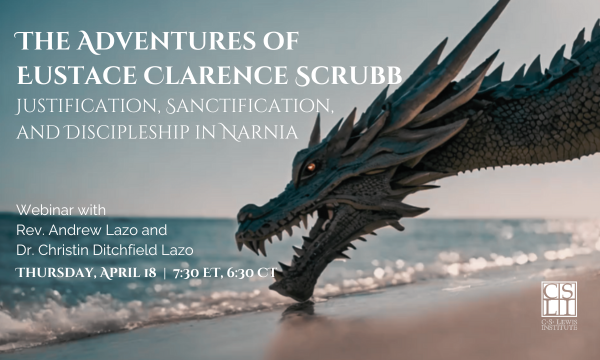
Bishop Handley Moule
Click here to open a Print - Friendly PDF
In May 17, 1921, while traveling on a train, Bishop Handley Moule wrote a short poem about three places in England that he loved: “Three Affections in One Life.”
The first was the place of his birth—Dorset—his “mother.”
Dorset, my heart’s first warmth is thine
Till all my years are done,
O fair and dear, O mother mine.
O glory of thy son.
Handley Carr Glyn Moule was born on December 23, 1841, the youngest of eight sons of Henry and Mary Evans Moule. Handley’s father was the evangelical Anglican vicar of Fordington, now a suburb of Dorchester. He has been described as “a preacher of a gospel of definite and personal change of heart and subsequent devotion of life.” Handley always gave thanks that “such a personality” embodied to him “the great word Father.”
Handley’s godly mother had a love for language and literature. Henry Moule often claimed that she was more responsible than he for his sons’ piety and successes. Young Handley learned from his mother’s example, he said, that “prayer was a work most real, most momentous.”
In Memories of a Vicarage, Handley Moule fondly describes “the silvered waters of the Frome [River] as it flowed on its way through a maze of sunshine and shadow cast by oak and elm in the level meadows of the Dorset Downs.” Handley was educated at home. As a child he suffered with eye problems, so his mother read to him from great books, instilling in him a lifelong quest for learning.
At the age of sixteen, he had memorized the Greek text of Ephesians and Philippians. From his brothers he learned the arts of bell ringing and woodcarving. The Moule sons compiled a remarkable record of service in education and the church, two of them becoming missionaries, both as bishops in China.
The revival of 1859 touched Fordington. Nightly meetings in Henry Moule’s church featured no great preacher but simply the reading of Scripture and prayer. Even so, many were “awakened, awed and made conscious of eternal realities.” In later years, on three different occasions, Handley Moule gave up what he was doing and gladly returned to assist his father in ministry at Fordington.
Handley Moule’s second love was Cambridge, which he described as “teacher” and “friend.”
Cambridge, kind teacher of my youth,
Blest home of golden days,
To thee I plight the grateful troth
That reverent friendship pays.
In 1859 Moule matriculated at Trinity College, Cambridge, beginning a close association with Cambridge that lasted throughout his life.
At Trinity his teachers included Joseph Barber Lightfoot, later, bishop of Durham—“mighty master of Apostolic and sub-Apostolic literature, strong defender of the faith, shepherd of the people.”Young Moule respected Lightfoot for his learning and loved him for “the great goodness of his personality and [his] true-hearted kindness.”
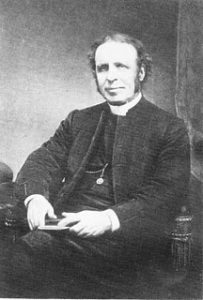 Moule had a brilliant academic career at Cambridge, excelling in Latin, Hebrew, and Greek, and winning awards and prizes for his essays and poems. But the academic environment prompted theological doubts and questions and put his childhood convictions to a severe test.
Moule had a brilliant academic career at Cambridge, excelling in Latin, Hebrew, and Greek, and winning awards and prizes for his essays and poems. But the academic environment prompted theological doubts and questions and put his childhood convictions to a severe test.
He kept faithfully, however, to church attendance and to religious reading on Sundays, knowing it was his father’s wish. Moule often referred to the mental and spiritual benefits of devoting Sundays to reading works of Christian devotion—a practice he followed all his life.
Years later Handley Moule wrote that during this time of doubt and confusion, God had kept him from a “wrong life, though not from a world of evil within.” His Cambridge friends were unaware of the depths of his struggle.
One wrote that Handley Moule was “very simple and retiring, very affectionate, always the same quiet, earnest Christian, exerting his unseen but widely felt influence beyond the circle of his friends.”
Moule’s doubts were resolved during the 1866 Christmas vacation. He wrote to his father, describing what had happened:
I was able to find and to accept pardon and peace through the satisfaction of the Redeemer, as I had never done before; and to feel a truth and solid reality in the doctrine of the Cross as I have ever been taught it at home, such as I had sometimes painfully—very painfully—doubted of, under the continual droppings of the controversies and questions of the present day.
Was this a conversion experience or the recovery of his childhood faith? We cannot be sure, but we do know that those days at the end of 1866 firmly established Handley Moule’s Christian faith and gave new purpose and direction to his life. Many years later Moule remembered “that glad day” when he was “permitted to realize the presence, pardon and personal love of the Lord, not reasoned, just received.”
Because of his own spiritual struggles, Handley Moule was always able to help people who were experiencing what some have called a “dark night of the soul.” To many, as to Christian in The Pilgrim’s Progress who was sinking in the deep waters of fear and doubt, Moule’s voice came like the voice of Hopeful: “Be of good cheer, my brother; I feel the bottom, and it is good.”
Handley Moule began to think about becoming a minister, with an eye toward helping his father. He wrote to a friend: “How I long for, and yet fear, the sacred office.” After his ordination, for five and a half years he served with his father as curate of Fordington.
Moule returned to Cambridge and to Trinity in 1872. “Now his return was that of a man who had made full trial of his conversion and ministry, a man of disciplined character and decided conviction,” writes Marcus Loane. When Handley’s mother died in 1877, he gave up his post at Cambridge to once again assist his father in Fordington. When his father died in 1880, Handley returned to Cambridge, where he was appointed the first head of Ridley Hall.
Ridley Hall was founded to preserve and set forth “the sound Scriptural and theological foundations of the Evangelical faith and practice of [the] Church as seen in Prayer Book and Articles.” Moule believed that the “evangelical school” was the truest exponent of Anglican worship and confession. Taking a stand against both ritualism and rationalism, Ridley Hall became a center of evangelicalism at Cambridge. Five hundred men passed through Ridley Hall while Moule was principal. His convictions about the church were summarized in a letter he wrote to a former student:
I believe the best way of all is to make the common people feel that there is no place like the church to go to, to hear the old Gospel of the Grace of God preached straight to their hearts and lives, their sins and sorrows, and let the worship of the church . . . be reverent, simple and real.
In 1880 Handley Moule preached his first sermon as lecturer at Trinity Church, a post he held for twenty-one years. Trinity was the church of the renowned Charles Simeon (1759–1836). Marcus Loane states that Moule’s ministry at Trinity was “perhaps the most notable” in Cambridge since the days of Simeon.
In August 1881 the forty-year-old Handley Moule married Mary Elliott: a friendship based on their love of music and literature—and their fervent faith—had blossomed into love. They had two daughters, Mary and Isabel.
D. L. Moody and his musician, Ira Sankey, conducted an eight-day mission to Cambridge in 1882. Moule signed the invitation to the Americans, but reluctantly, because he was not convinced that the preaching of Moody would succeed in touching the university. When he met Moody and heard him preach, however, he became an enthusiastic supporter.
Moule was in full sympathy with the missions movement. He warmly received Hudson Taylor, founder of the China Inland Mission, who visited Cambridge in 1884 and held meetings for a week. Moule gave a devotional address at the famous World Missionary Conference in Edinburgh in 1910.
When in his last illness, Moule experienced a number of “hallucinations,” almost entirely connected with his lifelong interest in missionary work. “What is the latest news from the mission field?” he asked those around his bed. “Tell me of conversions—of those brought to Christ.”

Handley Moule became a prolific and much-loved author, writing sixty books. He wrote commentaries on Romans, Galatians, Ephesians, Philippians, and Colossians, with “the critical eye of the scholar and the loving insight of the saint.” Marcus Loane says, “Few men have proved better able to penetrate the hidden deeps of Paul’s heart or to interpret the noble powers of Paul’s mind.” Moule also wrote books on theological topics, such as Outlines of Christian Doctrine (called by the Encyclopedia Britannica the best exposition of “evangelical Anglicanism”), Justifying Righteousness, and Veni Creator: Thoughts on the Person and Work of the Holy Spirit of Promise. He also penned books of poetry, such as In the House of the Pilgrimage, and books of consolation, including Letter of Comfort, which Moule wrote describing the comfort he found in Christ when his daughter Mary died. It was written with tears, writes Marcus Loane, “and without tears it can scarce be read.”
September 1884 marked a crisis for Handley Moule that would realign his spiritual life and his network. A team of Keswick speakers visited Cambridge. Moule was attracted by these men and their earnest seeking for a deeper spiritual life, but he was concerned about the soundness of their theology. Soon, however, the content of their preaching and his own spiritual hunger for “a deeper personal experience of the possibilities of grace” convinced him that the Keswick message was true.
In July 1886 Moule made his first appearance on the Keswick Convention platform, to which he would return a dozen times. In the first of the six sermons that he preached at Keswick on the occasion of his last visit in 1919, he said: “I know not how better to give in its vital essence the Keswick message than in the words of [Robert Murray] McCheyne: ‘Christ for us is all our righteousness before a holy God; Christ in us is all our strength in an ungodly world.’” Late in his life Handley Moule wrote, “Keswick is very dear to me. It has been for me the vestibule of Heaven . . . and its message is the very heart of the truth of our sacrificed and living Lord.”
According to John Baird, Handley Moule “became one of the chief theologians, and the preeminent scholar, of the [Keswick] movement, as well as its greatest literary exponent.” Moule brought scriptural balance to the teachings of Keswick, saving the movement from extremes of perfectionism (“To the last it will be a sinner that walks with God”—Christian Sanctity) and passivism (Paul prays “that the Colossians may be always practically pious, ‘bearing fruit in every good work’”—Colossian Studies). From Handley Moule people heard the message of Keswick given “with inimitable grace and skill, combining the accurate thought of the scholar with the spiritual fervour of the saint.”
In Handley Moule’s poem, his third love, Durham, is described as his “wife.”
Durham, to thee the call of Heaven
Has wed my willing life;
While strength endures, to thee I’m given,
The husband to the wife.
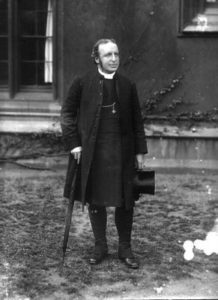 While vacationing in Beatenberg, Switzerland, in 1901, Handley Moule was called to become the eighty-fifth bishop of Durham. The office was one of personal interest to him because Nicholas Ridley, after whom Ridley College in Cambridge was named, had been designated to be bishop of Durham but “received first the martyr’s crown.” Moule’s Cambridge teacher Joseph Barber Lightfoot had been bishop of Durham from 1879 to 1889.
While vacationing in Beatenberg, Switzerland, in 1901, Handley Moule was called to become the eighty-fifth bishop of Durham. The office was one of personal interest to him because Nicholas Ridley, after whom Ridley College in Cambridge was named, had been designated to be bishop of Durham but “received first the martyr’s crown.” Moule’s Cambridge teacher Joseph Barber Lightfoot had been bishop of Durham from 1879 to 1889.
Lightfoot was followed by Brooke Foss Westcott, a man called by Moule “a saint, as true a servant of the Lord and of his brethren as the great Culdee St. Aidan.”
In his introductory letter to the clergy and people of the Diocese of Durham, Moule wrote:
I need and seek your prayers. Ask for me especially . . . a real effusion in me of that grace of the Spirit whereby Christ dwells in the heart by faith; a strength and wisdom not my own for my pastorate, and for the preaching of Christ Jesus the Lord; and a will wholly given over for labour and service at our Master’s feet.
As bishop of Durham, Handley Moule was not a great organizer and administrator like Bishop Lightfoot. Moule found office work taxing and diocesan finance distasteful. He was not at home in political matters, although he served as a member of the House of Lords. Neither did he excel in ecclesiastical discussions. He was not a leader of people like Bishop Westcott.
Moule was not always a good judge of character. He was easily imposed on, and some believed he was too quick to agree for the sake of peace. But, he wrote, “I have few greater happinesses than when I find myself in spiritual oneness with a Christian from whom, on grave subordinate points, I differ.” His successor as bishop of Durham said that Handley Moule maintained his evangelical convictions “without compromise, and expressed them without bitterness. No man could doubt either the strength of his faith or the largeness of his charity.”
Handley Moule excelled in pastoral ministry. He was more a shepherd of souls than a bishop of a diocese. His people, clergy and laity alike, knew that he loved them. He was the epitome of kindness toward all, listening to people’s cares and concerns and responding with thoughtful and helpful words. He wrote on average thirty letters a day, to all kinds of people with all kinds of needs and problems. A layman said that “he was almost too saintly to be a bishop.” According to John Baird, Moule “showed how good goodness can be.”
Mary Moule died suddenly on July 14, 1914. “He was devotedly attached to her,” wrote a friend, “but he accepted her departure as though she had merely preceded him on a journey.” A few years later, Handley Moule, though painfully ill, preached before the king and queen at Windsor Castle. Moule went from Windsor to his brother’s home in Cambridge, where he died a short time later on May 7, 1920. It was Ascension Day. The biography of Handley Moule by Harford and MacDonald concludes appropriately and beautifully:
St. Luke ends his Gospel showing the Lord’s Ascension as the end of his life on earth, and opens the Acts showing the same story from the other side, the beginning of his work in heaven. So it is with members of Christ. The solemn funeral service speaks of faith and hope—in the case of our Bishop, triumphant hope. And John Bunyan [The Pilgrim’s Progress] paints in true colors the upper side of such a death as the Bishop’s—when he went to stand before his Heavenly King . . . “Now I saw in my dream that these two men went in at the gate, and lo, as they entered they were transfigured, and they had raiment put on that shone like gold. There were also those that met them with harps and crowns, and gave to them the harps to praise withal, and the crowns in token of honour. Then I heard in my dream that all the bells of the city rang again for joy, and that it was said unto them, ‘Enter ye into the joy of your Lord.’”
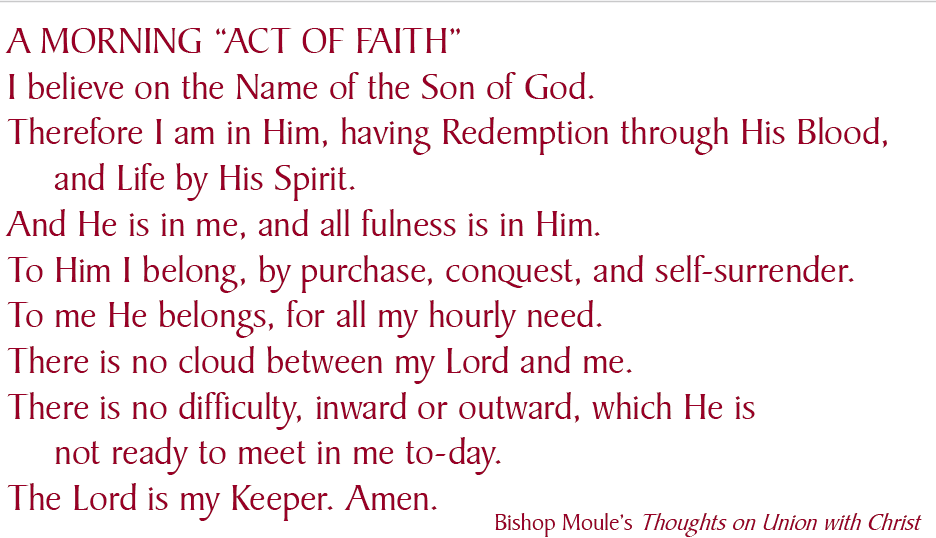
The major works on the life of Handley Moule are Handley Carr Glyn Moule: Bishop of Durham, by John Battersby Harford and Frederick Charles MacDonald (1922); Handley Carr Glyn Moule (1841–1920), by Marcus L. Loane (1940); The Spiritual Unfolding of Bishop H.C.G. Moule, D.D., by John Baird (1926); and Letters and Poems of Bishop Moule, edited by John Battersby Harford (1922). The phrase “bright messenger of God” is found in Baird’s book on page 124.

David B. Calhoun
ProfessorDavid B. Calhoun, (1937-2021) was Professor Emeritus of Church History at Covenant Theological Seminary in St. Louis, Missouri. A minister of the Presbyterian Church in America, he has taught at Covenant College, Columbia Bible College (now Columbia International University), and Jamaica Bible College (where he was also principal). Calhoun has served with Ministries in Action in the West Indies and in Europe and as dean of the Iona Centres for Theological Study. He was a board member (and for some years president) of Presbyterian Mission International, a mission board that assists nationals who are Covenant Seminary graduates to return to their homelands for ministry.

 COPYRIGHT: This publication is published by C.S. Lewis Institute; 8001 Braddock Road, Suite 301; Springfield, VA 22151. Portions of the publication may be reproduced for noncommercial, local church or ministry use without prior permission. Electronic copies of the PDF files may be duplicated and transmitted via e-mail for personal and church use. Articles may not be modified without prior written permission of the Institute. For questions, contact the Institute: 703.914.5602 or email us.
COPYRIGHT: This publication is published by C.S. Lewis Institute; 8001 Braddock Road, Suite 301; Springfield, VA 22151. Portions of the publication may be reproduced for noncommercial, local church or ministry use without prior permission. Electronic copies of the PDF files may be duplicated and transmitted via e-mail for personal and church use. Articles may not be modified without prior written permission of the Institute. For questions, contact the Institute: 703.914.5602 or email us.
-
Recent Podcasts
The Side B Stories – Dr. James Tour’s story
by Jana Harmon, James Tour on April 12, 2024From a secular Jewish home, scientific scholar and...Read More
-
Why are Christians so Bad?
by Paul Joen on April 5, 2024
-
Questions That Matter Podcast – Dai Hankey and Gospel Hope for Weary Souls
by Randy Newman, Dai Hankey on April 5, 2024
-
Recent Publications
Isn’t Morality Relative?
by Christopher L. Reese on April 1, 2024It is widely accepted in the Western world...Read More
-
Do Muslims and Christians Worship the Same God?
by Andy Bannister on March 1, 2024
-
Artificial Intelligence and Its Impacts on Humanity
by John Lennox on February 13, 2024
0
All Booked
0.00
All Booked
0.00
All Booked
21934
GLOBAL EVENT: The Adventures of Eustace Clarence Scrubb (CSLI-Atlanta & CSLI-Chicago) 7:30PM ET/ 6:30PM CT
https://www.cslewisinstitute.org/?event=global-event-the-adventures-of-eustace-clarence-scrubb-csli-atlanta-csli-chicago-730pm-et-630pm-ct&event_date=2024-04-18®=1
https://www.paypal.com/cgi-bin/webscr
2024-04-18

Next coming event
Days
Hours
Minutes
Seconds
GLOBAL EVENT: The Adventures of Eustace Clarence Scrubb (CSLI-Atlanta & CSLI-Chicago) 7:30PM ET/ 6:30PM CT
On April 18, 2024 at 7:30 pm Virtual Online EventSpeakers
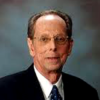
David B. Calhoun
Professor
Team Members

David B. Calhoun
ProfessorDavid B. Calhoun, (1937-2021) was Professor Emeritus of Church History at Covenant Theological Seminary in St. Louis, Missouri. A minister of the Presbyterian Church in America, he has taught at Covenant College, Columbia Bible College (now Columbia International University), and Jamaica Bible College (where he was also principal). Calhoun has served with Ministries in Action in the West Indies and in Europe and as dean of the Iona Centres for Theological Study. He was a board member (and for some years president) of Presbyterian Mission International, a mission board that assists nationals who are Covenant Seminary graduates to return to their homelands for ministry.




